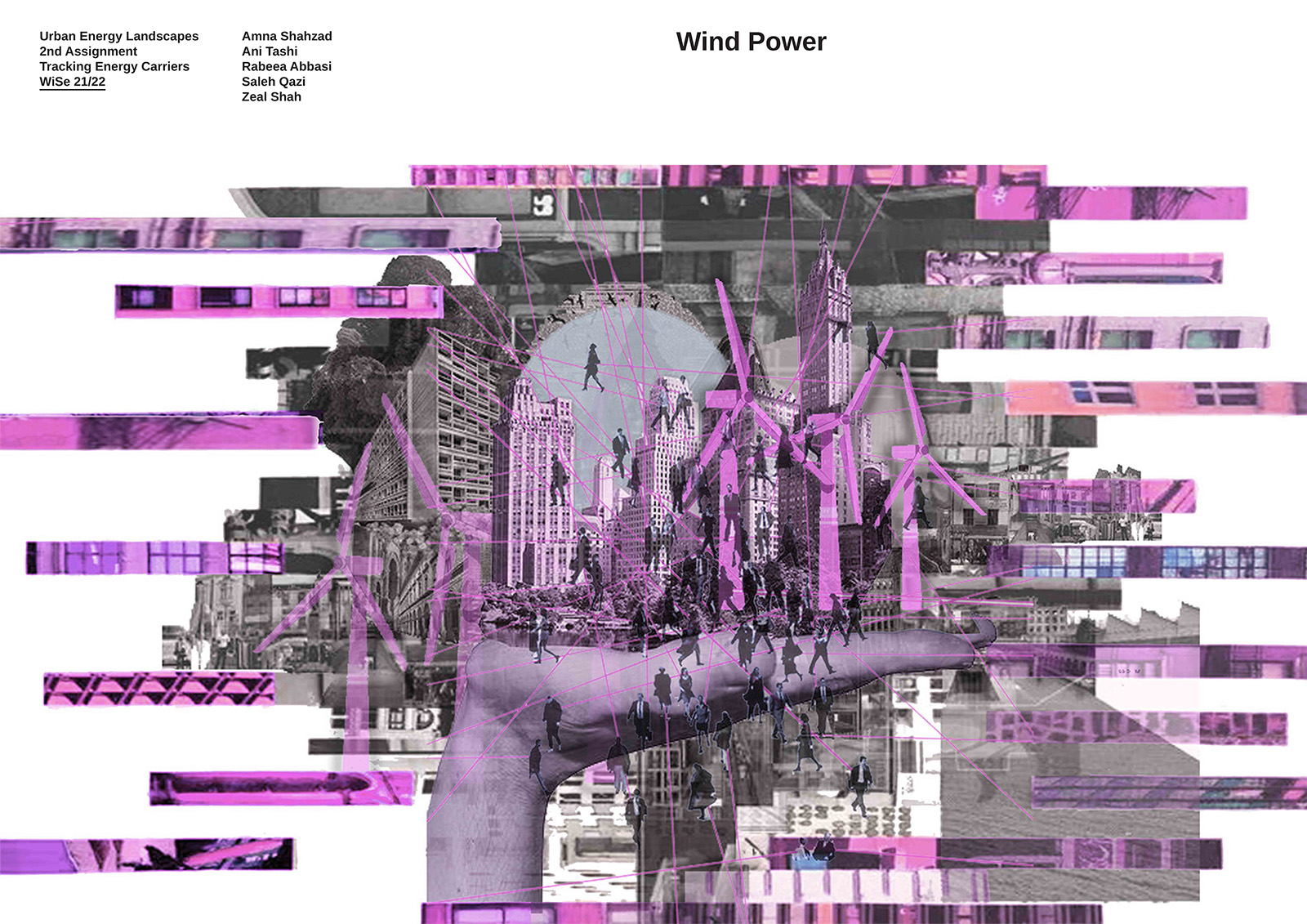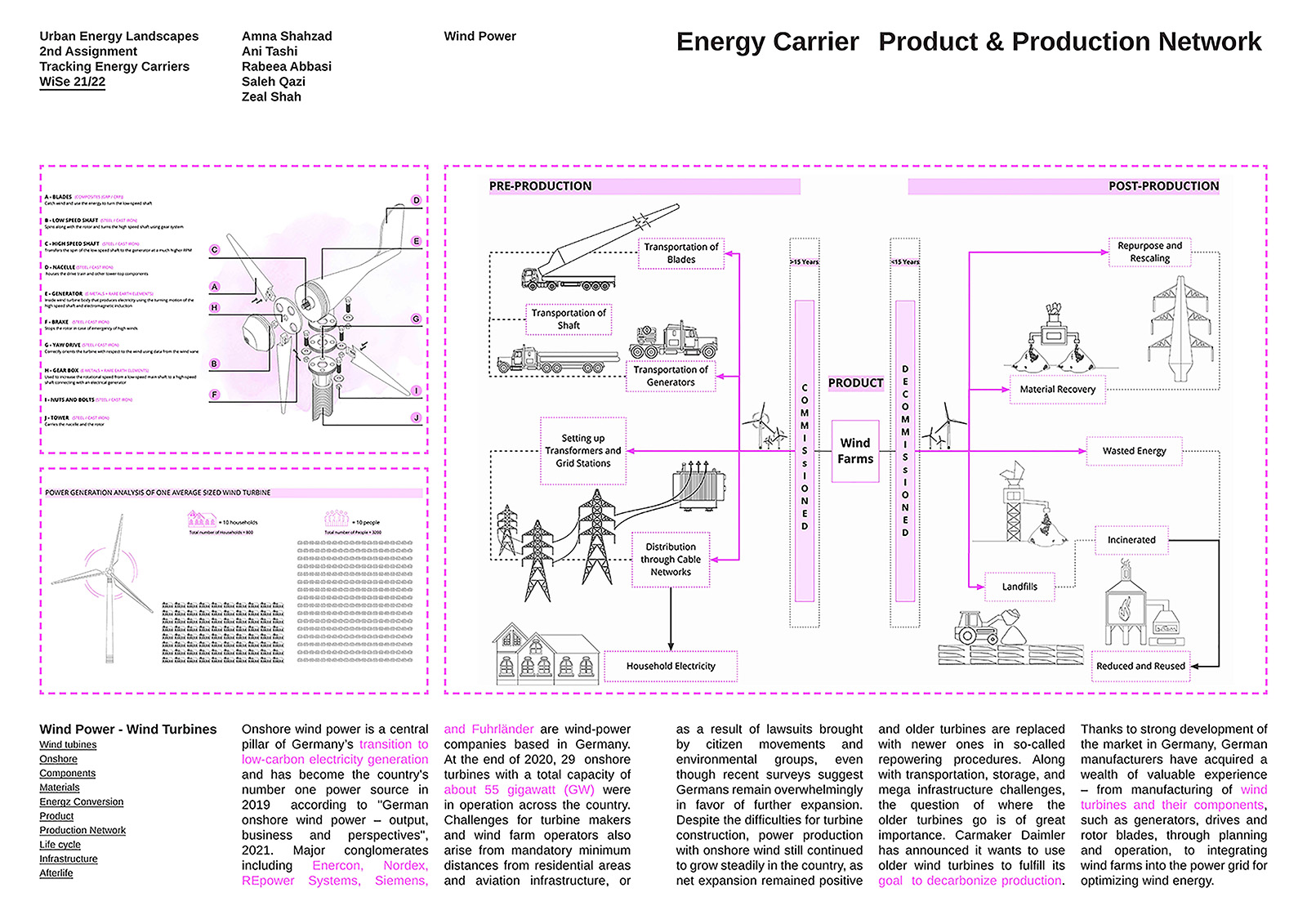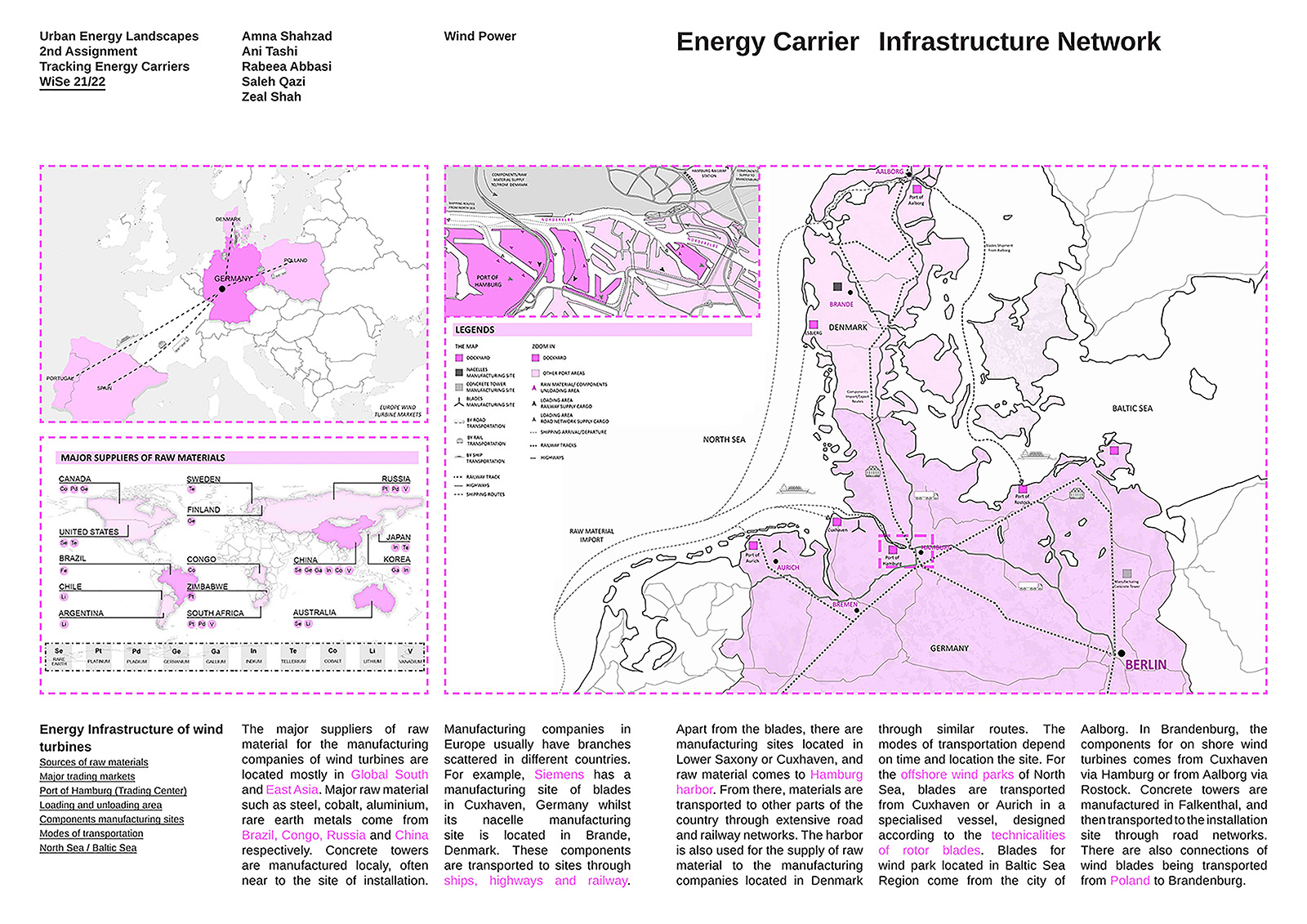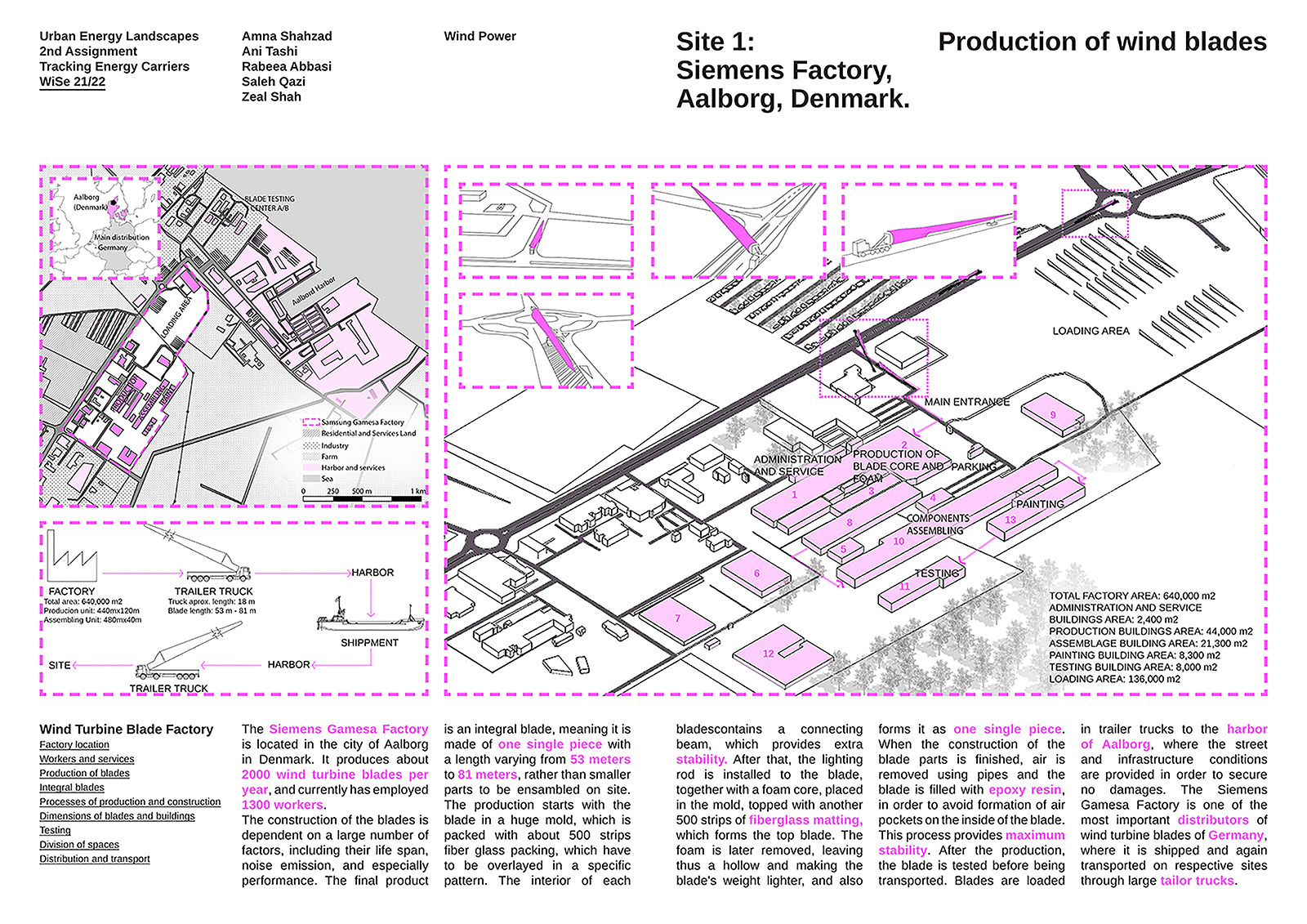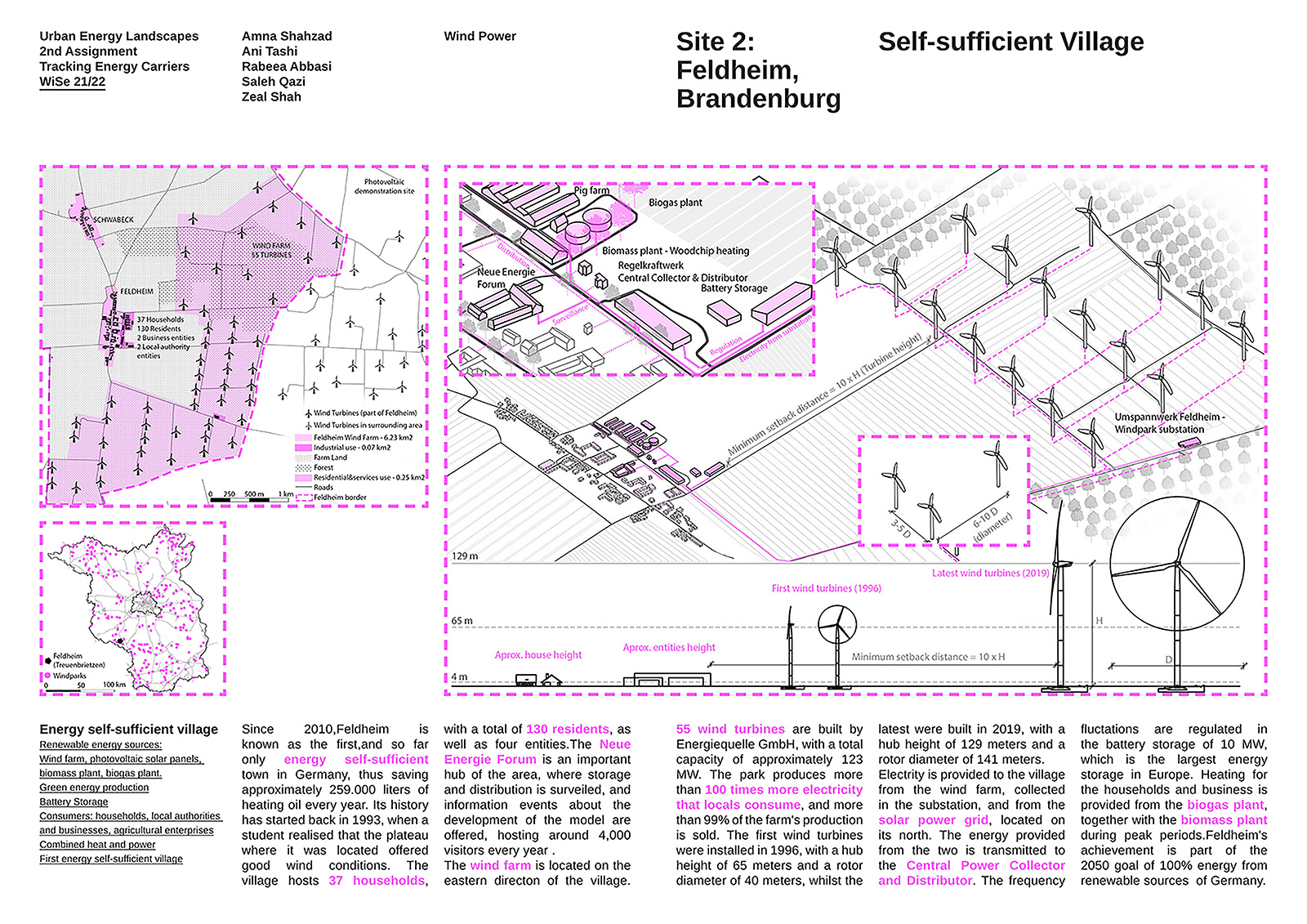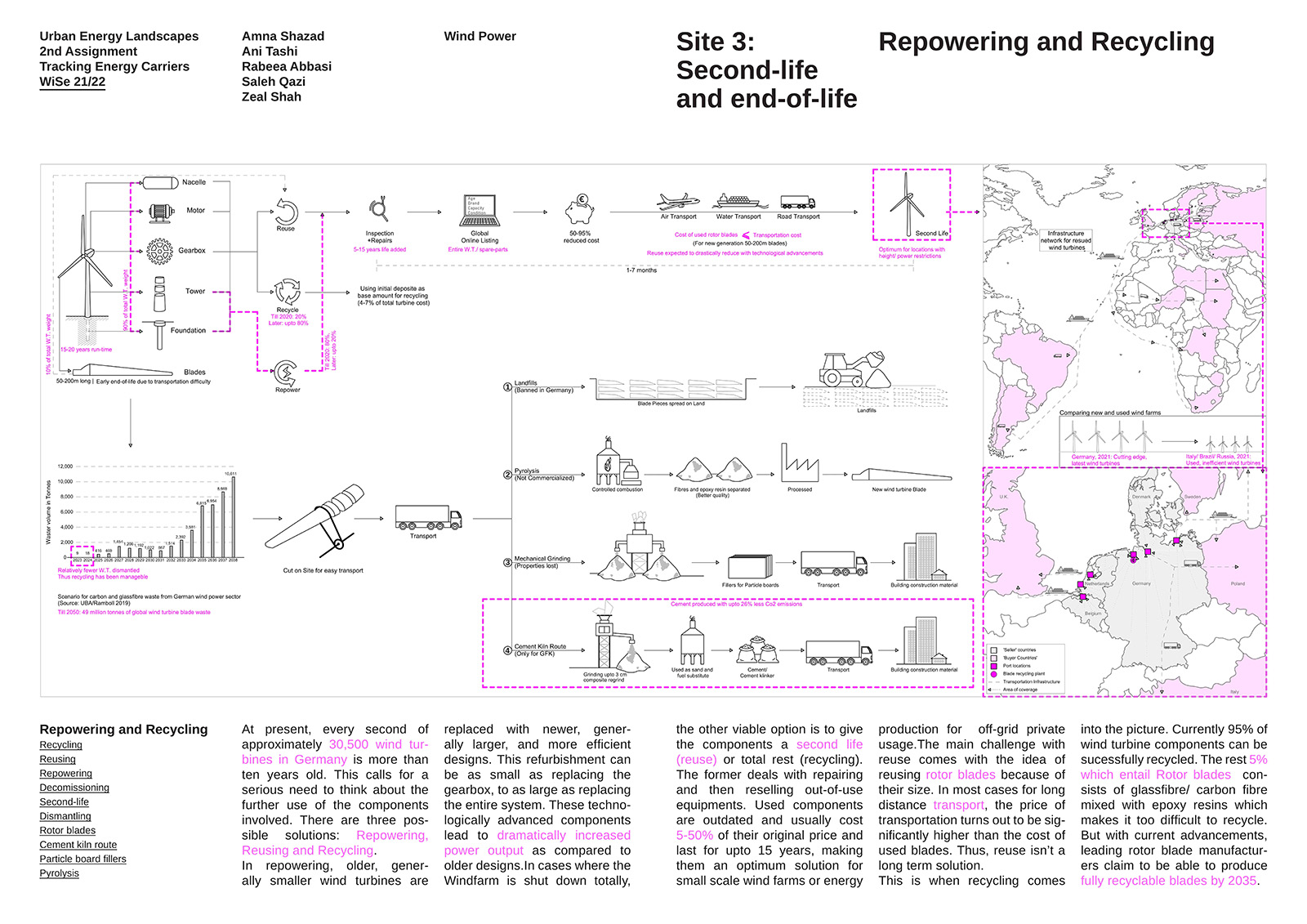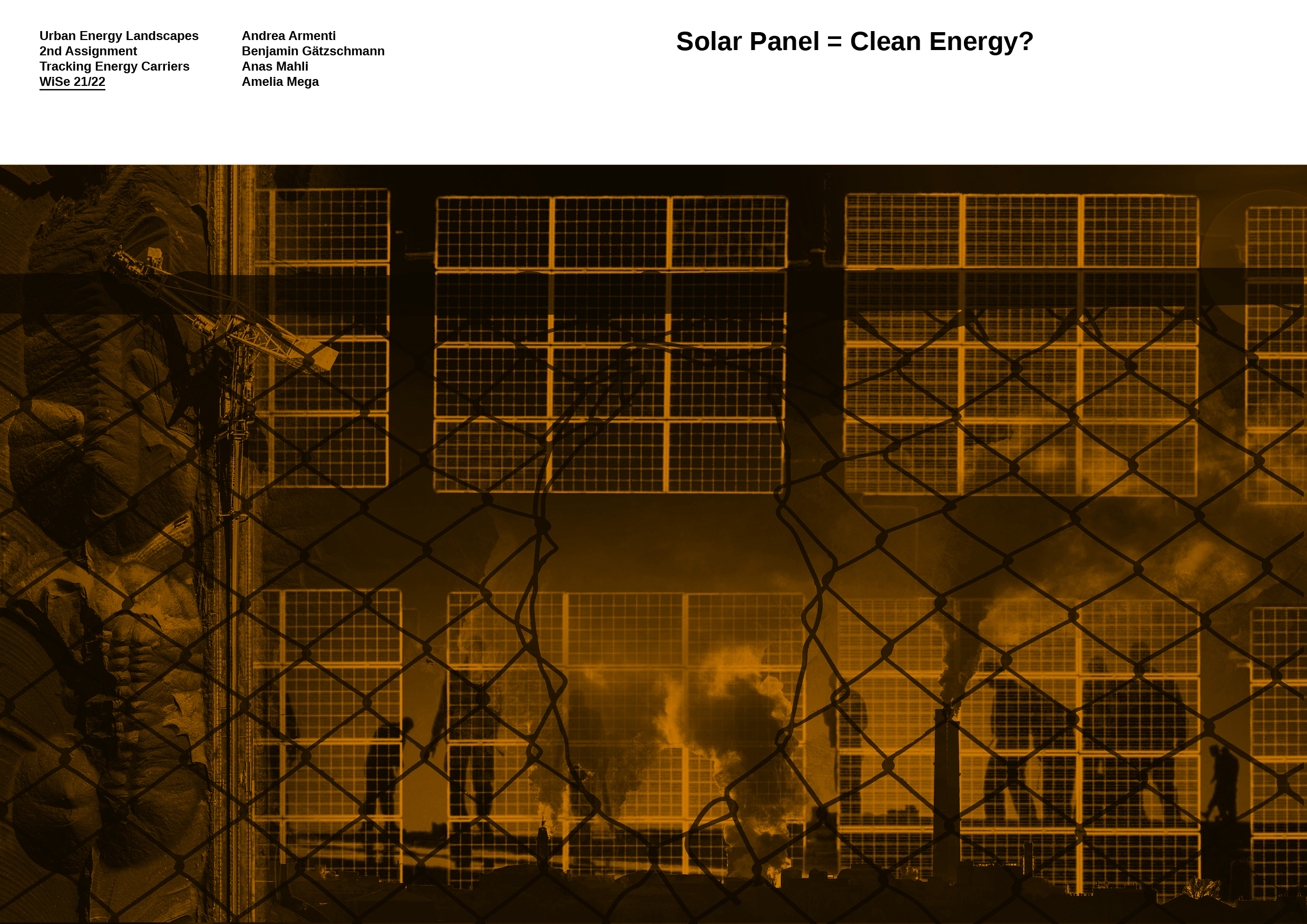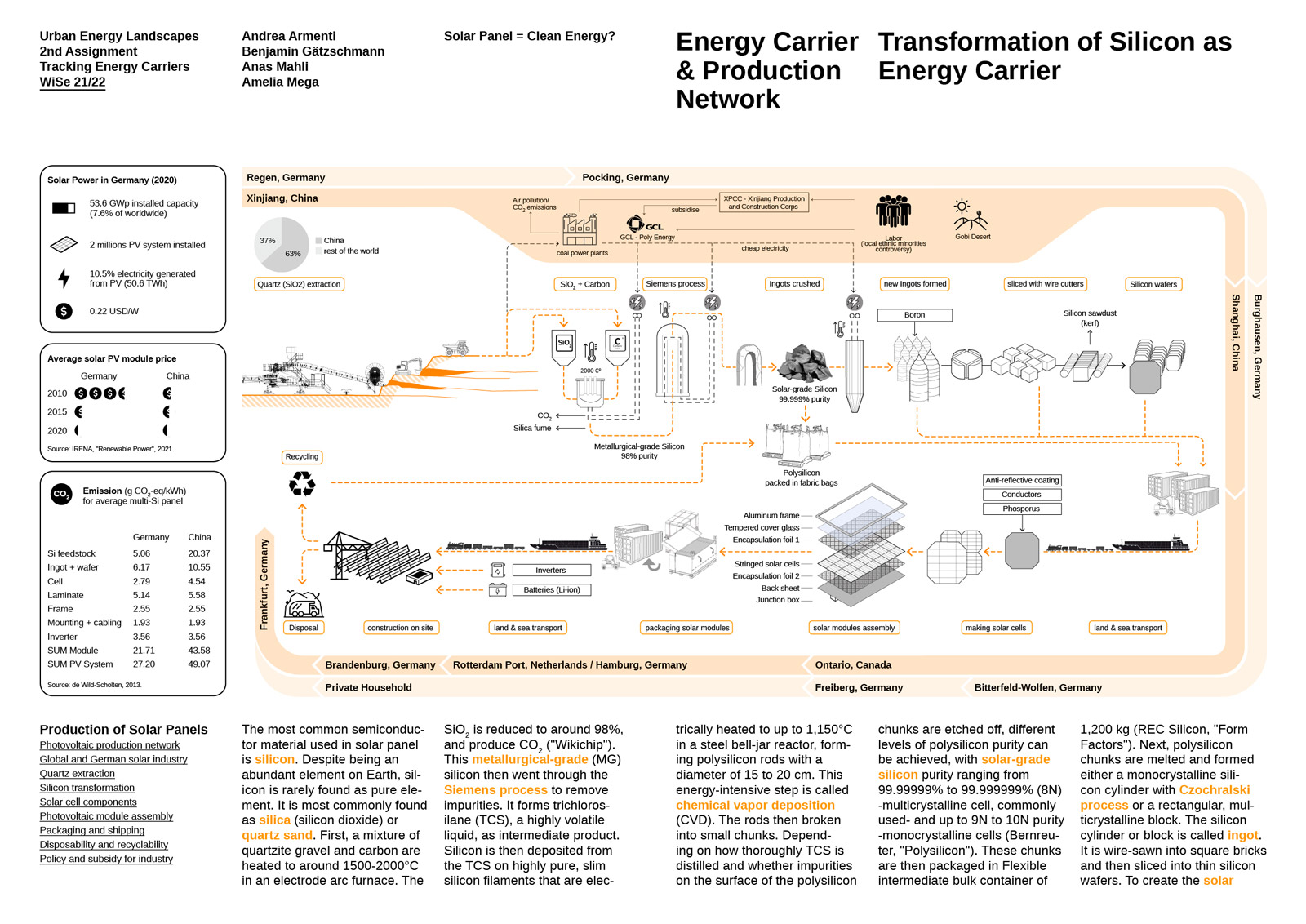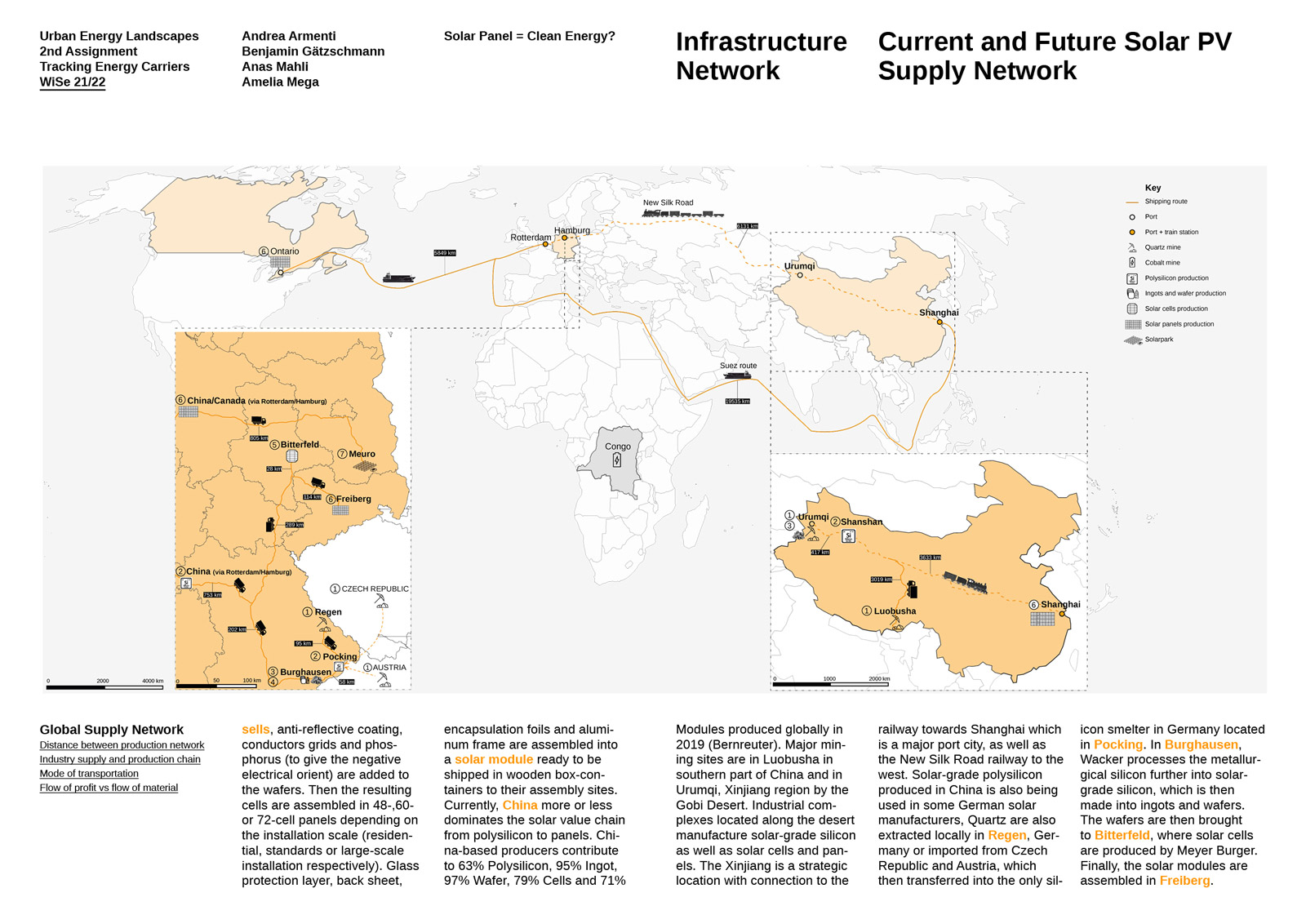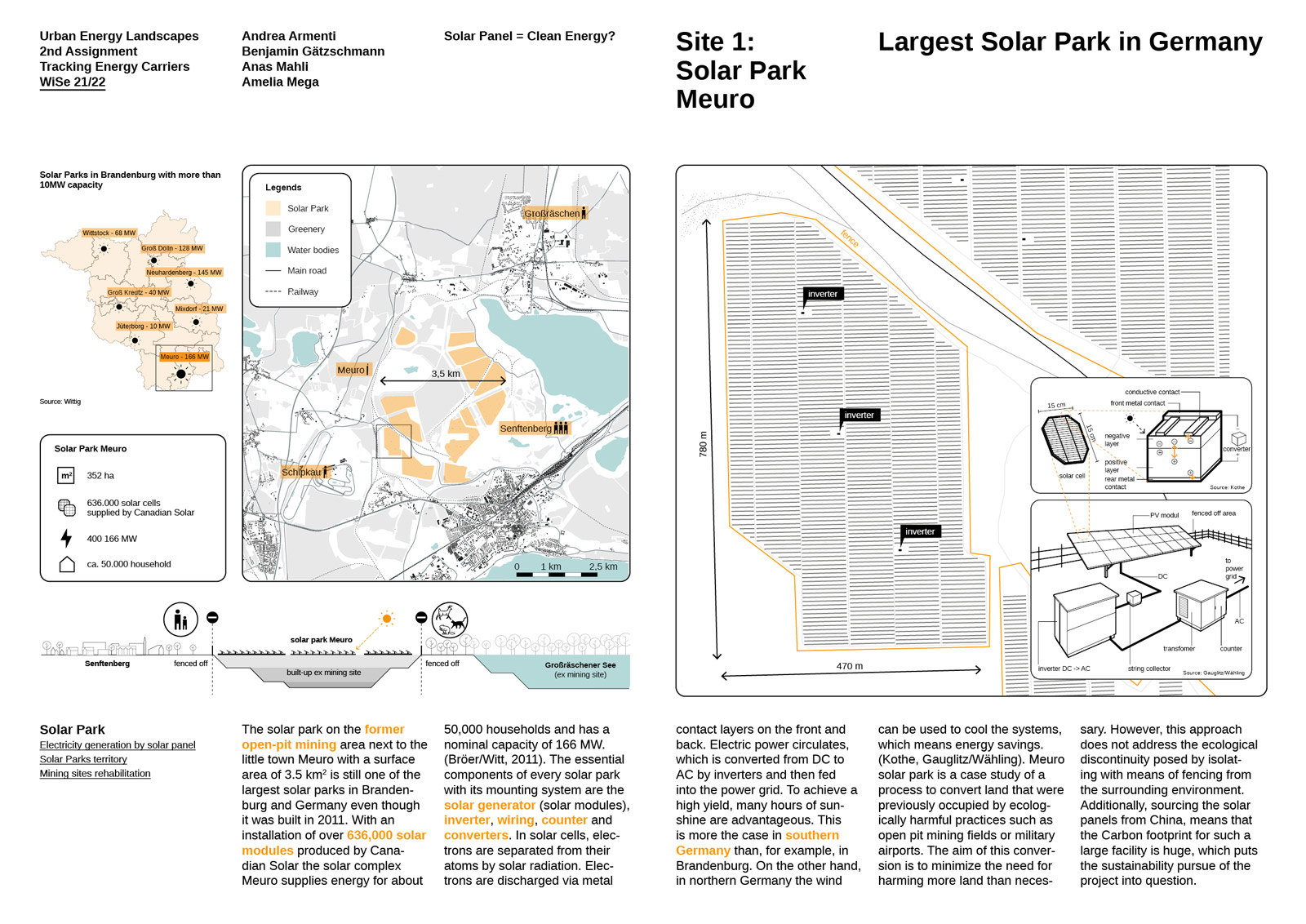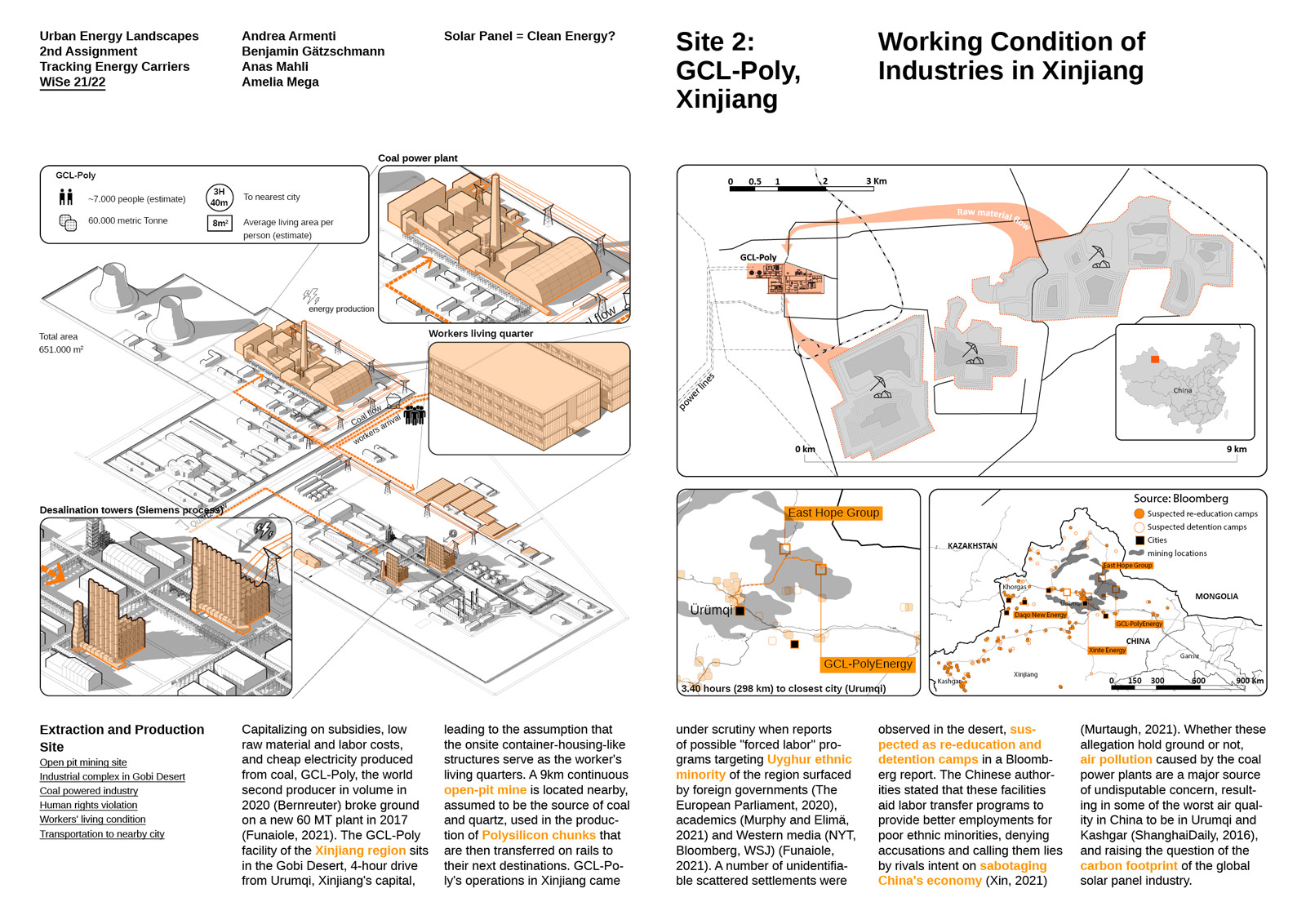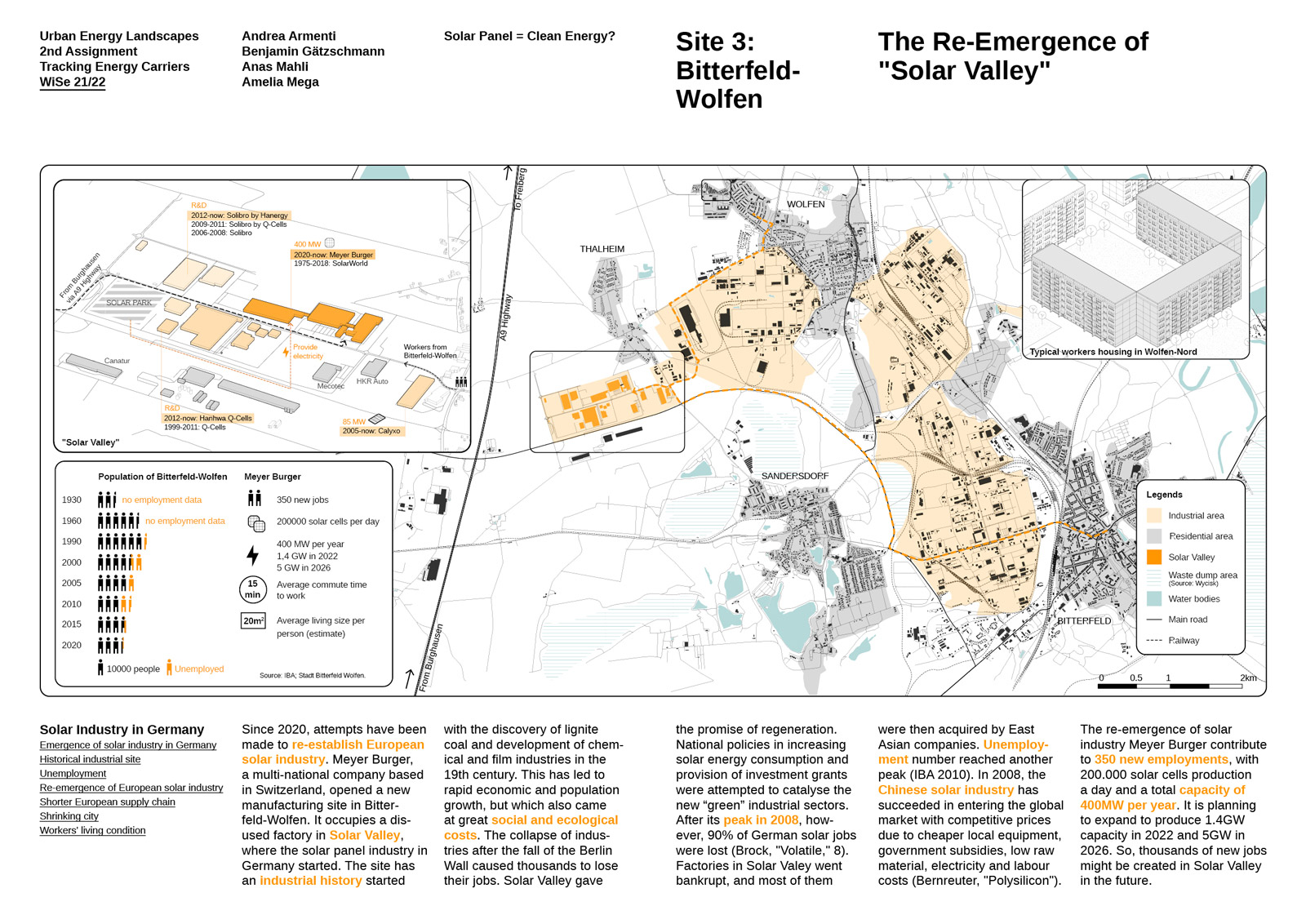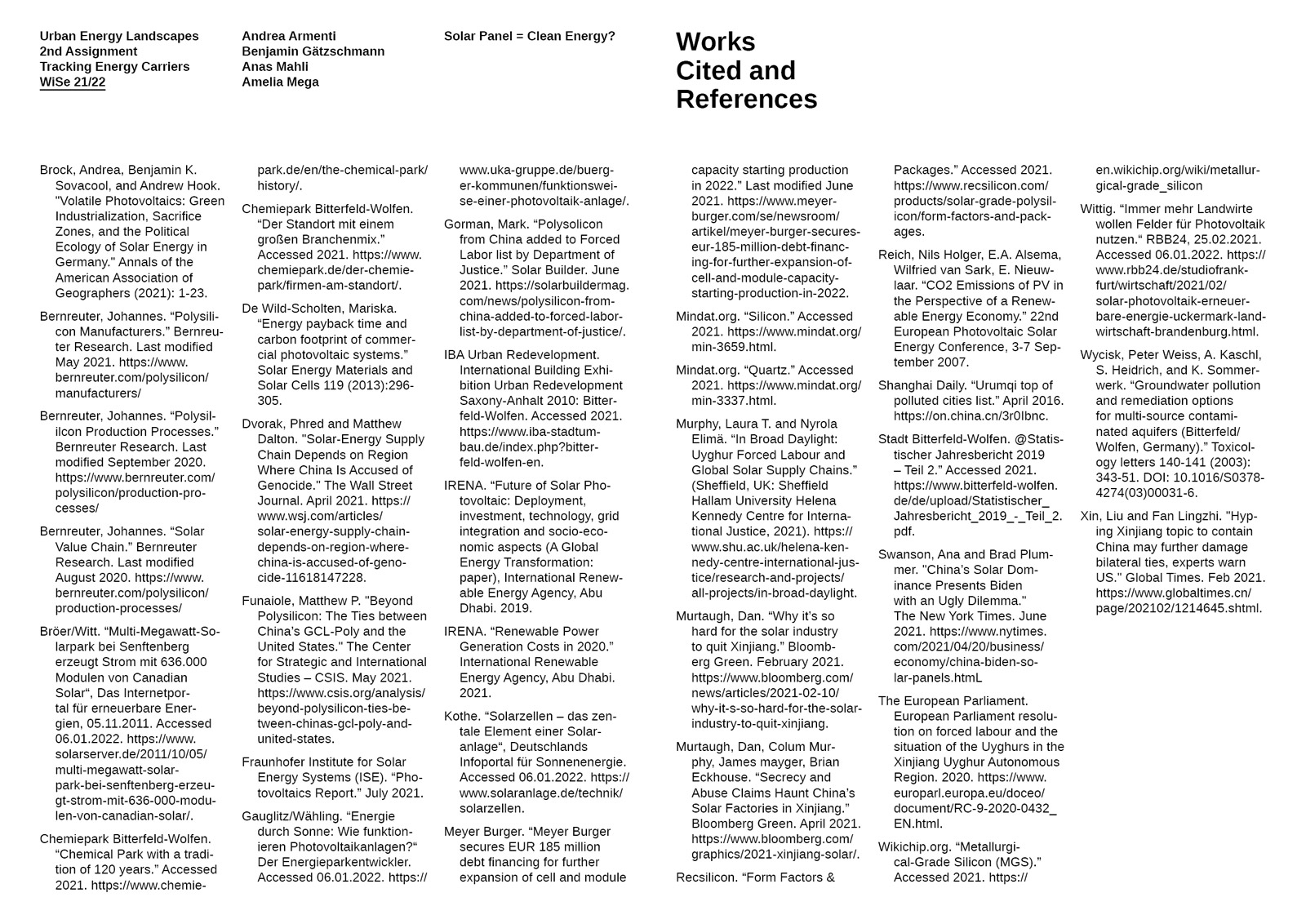Urban Energy Landscapes
Tracing
Wind & Solar
By: Amna Shahzad, Ani Tashi, Rabea Abbasi, Saleh Qazi & Zeal Shah
Andrea Armenti, Benjamin Gätzschmann, Anas Mahli & Amelia Mega
Shahadat MD Hossain, Valentin Mühlich, Elnaz Schafiezadeh, Sandra Susan & Teresa Tonndorf
Studio: WS 2022
“Urban Energy Landscapes”
Prof. Dr. Elke Beyer
David Bauer
Rosa Pintos Hanhausen
Support by:
Katerina Marečková
Ludwig Thanhäuser
Veit Vogel
Habitat Unit
Windpower
Onshore wind power is a central pillar of German's transition to low-carbon electricity generation and has become the country's number one power source in 2019. Thanks to the strong development of market in Germany, German manufacturers have acquired a wealth of valuable experience from transportation and manufacturing of wind turbines and their components. Major supplies of raw material for manufacturing companies of wind turbines are located in the Global South. The manufacturing companies in Europe have branches scattered in different countries. The emphasis here is laid on tracing energy carriers of pre-production and post-production processes as well as efficiency, decommissioning and recycling through the lens of case studies from Siemens Gamesa Factory and the Self-Sufficient Village of Feldheim.
Solar Energy
The research started in Berlin-Brandenburg with one of the largest solar parks in Germany, and the largest connected solar complex in the world at the time of its commissioning in 2011.
Then we traced the supply chain of it's the solar panels it uses and the raw materials that are made of to Chinese and Canadian companies, and we investigated the controversy behind their production, involving coal and forced labour. After that, we identified an alternative supply chain that revitalize a more localized German-European supply chain in order to deviate away from controversial sources.
BB2040
[EN] Berlin Brandenburg 2040 was initiated by the Habitat Unit in cooperation with Projekte International and provides an open stage and platform for multiple contributions of departments and students of the Technical University Berlin and beyond. The project is funded by the Robert Bosch Foundation.
[DE] Berlin Brandenburg 2040 wurde initiiert von der Habitat Unit in Kooperation mit Projekte International und bietet eine offene Plattform für Beiträge von Fachgebieten und Studierenden der Technischen Universität Berlin und darüberhinaus. Das Projekt wird von der Robert Bosch Stiftung gefördert.
